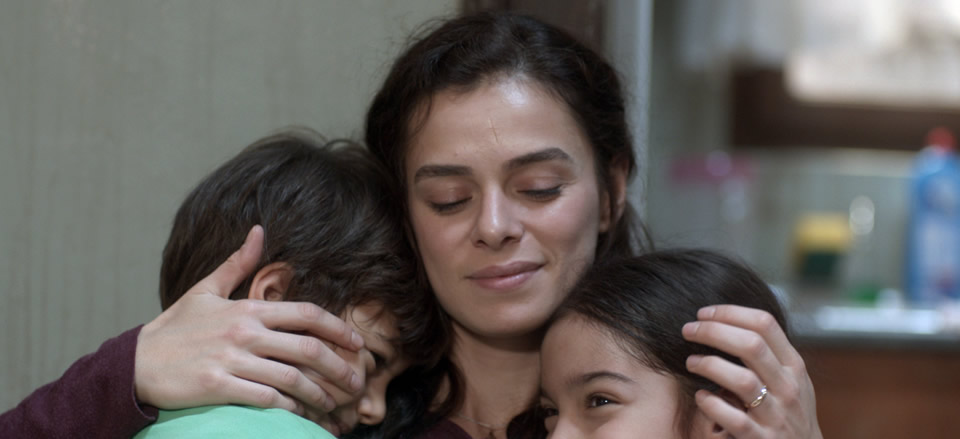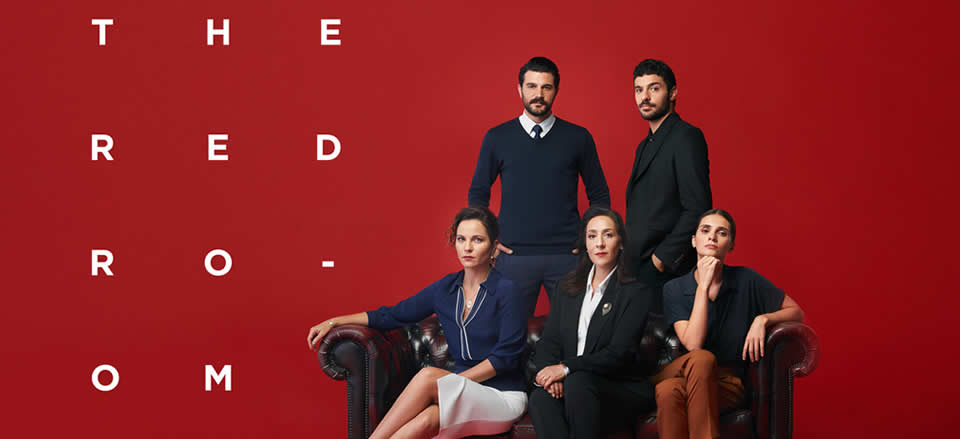One of the secrets behind success is to never stop looking for the next big thing, even when times are good, and that’s the strategy being used by the Turkish TV industry, presenting new genres that are beginning to gain ground among the ever-popular traditional dramas.
Before reviewing how the Turkish audiovisual offer has evolved beyond traditional dramas, which exploded in popularity in Latin America over the last five years, it is necessary to clarify that the original genre is still as current as ever.
The fact that Turkish audiovisual content distributors are now offering buyers new genres, it’s not because their core business is slowing down, but rather because of the opportunities they created themselves with the popular “dizi”.
A clear example of the validity and power of traditional Turkish dramas is Woman, possibly one of the most important audiovisual properties of the year in Ibero-America. The series, distributed by Calinos Entertainment, didn’t just continue Turkish series’ momentum in Spain, it pushed it into a new gear: under the title Mujer, it made the jump from niche networks to main broadcast networks in the country, breaking all kinds of ratings records on Antena 3.
“Woman is succesful in almost every country its airing, but in Spain we have the most outstanding numbers,” says José Luis Gascue, EVP and Head of Worldwide Sales at Calinos Entertainment. “The series has become the first Turkish drama series to be aired on a national channel in Spain and not only that. but it has been an audience leader since the first day. It has been a huge success for everyone involved.”

Woman
In Latin America, an already mature market for traditional Turkish dramas, the success continues and has raised questions about how the phenomenon will evolve in the region. Many still hope that international co-production will be the next big step in the relationship between Turkey and Latin America, but reality -and, of course, 2020- have made these projects very difficult to translate from paper to production.
The evolution that has come naturally, rather than being large co-productions between countries, has actually been an expansion of the Turkish offer, where various factors have led local audiovisual content to bet on more innovative and ambitious projects.
The clearest example that has stood out in recent years is historical dramas. Million-dollar productions, with huge casts, multiple locations and spectacular costumes, that have followed in the footsteps of hits like Game of Thrones, but taken their inspiration from the rich history and culture of Turkey.
They are dramatizations of the events that occurred in historical times, which achieve -in their mixture of epic adventure and love stories- a narrative as attractive as their photography or costumes.
TRT started the experience in Turkey with Resurrection: Ertugrul, so its distributor, Mistco, was among the first to introduce the genre to buyers: “We started it with Resurrection: Ertugrul and we noticed that buyers had their doubts about the genre. But it ended up working fantastically at the international sales level,” Aysegul Tuzun, Managing Director of Mistco, said to ttvnews.
“We sold it to many territories, including Netflix globally. It was the series that opened the doors for Turkish historical dramas,” she added.

The Great Seljuks: Guardians of Justice
Emre Görentas, Deputy Sales Manager for North and South America, and MENA at ATV Distribution, shared with ttvnews that it is not easy to sell historical content, but it can be done with the exact dose of drama: “If you have a historical title, like a documentary, there aren’t many potential buyers for that series. But when you have something historical that adds a love story, I can say that there is an international interest”.
Regarding the ATV drama, The Ottoman, the executive explained that it is a historical drama, “but it is also a romantic drama, with many characters who have their love stories, which is why it has gathered so much interest from the international market.”

The Ottoman
Mistco, who has now added another historical drama, The Great Seljuks: The Guardian of Justice, notes that, along the way, the situation has changed: “Historical dramas are different from the other Turkish dramas that we bring to the markets and it is very good to see that there is an increase in demand, “says Tuzun. “We had great results for Resurrection: Ertugrul and we believe we will achieve the same with The Great Seljuks: The Guardian of Justice”.
On the other end of the spectrum are romantic comedies, which have grown in value over the past few years and, with audiences needing a respite from the mostly negative news of 2020, they have become an excellent addition to any programming grid.
“During the pandemic we realized that other types of content are also able to find their place in the international market, for example lighter content such as romantic comedies,” said Görentas. “This wasn’t the case before, at least with Turkish productions, but this year, with all the challenges, romantic comedies offer a chance to relax.”
For Lisa Wegscheider, Sales Executive for Latin America and Spain at Eccho Rights, this evolution is not that new or brought on by the pandemic, but it is still real: “We can see that new stories continue to appear, but I don’t believe it is a recent evolution. The genre has evolved in recent times, playing with the concept of romantic dramas.”
Another path taken by Turkish dramas is to use true stories as the basis for their narrative and, this year, it’s all about stories where mental health plays a prominent role. This is the case with products such as The Innocents and The Red Room, two series that adapt works by psychiatrist Gülseren Budayıcıoğlu.

The Red Room
“The Red Room is undoubtedly a new, different kind of story, but at the same time it presents the key emotions that audiences have fallen in love with for so long, such as love, passion, personal effort and family”, Wegscheider said.
THE ROLE PLAYED BY PLATFORMS
Another key element to understanding the evolution of Turkish dramas is the advent of digital platforms, with its impact accelerating during the quarantine imposed to deal with Covid-19.
In Turkey, BluTV, owned by Kanal D, and, of course, Netflix, have played a very important role in leading the way to another type of content: the miniseries.
“A lot is being produced locally for the BluTV platform and for Netflix, which will soon launch new Turkish titles,” Mikaela Pérez, Sales executive for Latin America and Spain at Kanal D International, explained to ttvnews. “In Turkey, the consumption of streaming during the pandemic increased much more than that of broadcast TV.”
“Platforms are looking for a lot of content since people at home consume much more television, in all its forms,” said Beatriz Cea Okan, VP and Head of Sales and Acquisitions at Inter Medya. “I believe that there we will have an open path to selling much more Turkish product, not only to broadcast TV, but also to platforms.”
Inter Medya, in fact, is not only planning to distribute more to digital platforms, but also made its way as a production company working with BluTV. This year they released their second original fiction, Respect, while also representing another new miniseries, Interrupted Life, from TIMS&B.

Respect
“Miniseries are trending here in Turkey,” said Cea Okan. “They are series of seven to ten episodes. It is something totally different, it is another concept, but I think it is something that will start to attract attention in Latin America and Spain.”
Although miniseries are a whole other story, the length of traditional Turkish series could also begin to turn to a smaller number of episodes with time.
“I have noticed that many of our clients are opting for content that’s a little shorter than usual,” added Pérez. “Normally we license titles of 150 and 200 episodes, but since buyers don’t have a clear vision of the future in programming, they are opting for shorter content and playing with their programming grid.”
Finally, Turkish adaptations of international content are also beginning to find enormous success on local screens and are therefore projecting good results internationally.
Kanal D’s bet on adapting the famous American series Dr. House, locally titled Hekimoğlu, has been a success and is now in its second season. Now for the end of November, the channel is preparing the premiere of the local adaptation of the Philippine drama A Mother’s Guilt.
In a mix between both tendencies, although in the opposite direction in terms of adaptation, we find Alba, the Spanish version of the Turkish drama Fatmagül, which is being produced as a series of 13 episodes. Kanal D International will be its distributor for the region.











